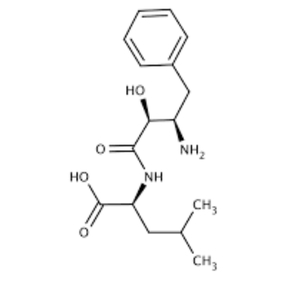Blog Information
- Posted By : qian liu
- Posted On : Nov 16, 2023
- Views : 75
- Category : General
- Description : Ubenimex, also known as pegfilgrastim, is a long-acting granulocyte colony-stimulating factor (G-CSF) that plays a critical role in stimulating the production of white blood cells, particularly neutrophils. These cells are essential components of the immune system, responsible for fighting infections and promoting healing. Ubenimex is primarily used to treat neutropenia, a condition characterized by low neutrophil counts.
Overview
Mechanism of Action
Ubenimex exerts its therapeutic effects by binding to specific receptors on the surface of hematopoietic stem cells, the precursors of blood cells. This binding triggers a signaling cascade that activates the cells, causing them to proliferate and differentiate into mature neutrophils. By stimulating neutrophil production, Ubenimex helps to restore normal neutrophil levels and enhance the body's ability to fight infections.
Clinical Applications
Ubenimex is primarily indicated for the following conditions:
Neutropenia induced by chemotherapy or radiation therapy: In cancer patients undergoing chemotherapy or radiation therapy, the bone marrow, the site of blood cell production, can be damaged, leading to neutropenia. Ubenimex can effectively stimulate neutrophil production, reducing the risk of infections and enabling patients to continue their cancer treatment without undue interruption.
Neutropenia associated with severe congenital neutropenia (SCN): SCN is a rare genetic disorder characterized by chronic neutropenia. Ubenimex can effectively increase neutrophil counts in patients with SCN, reducing their susceptibility to infections and improving their overall health.
Advantages over Traditional G-CSFs
Ubenimex offers several advantages over traditional G-CSFs, such as filgrastim, making it a preferred choice for many patients:
- Longer Duration of Action: Ubenimex has a longer half-life than traditional G-CSFs, allowing for less frequent dosing and maintaining stable neutrophil levels.
- Reduced Injection Site Reactions: Ubenimex is associated with a lower incidence of injection site reactions, such as redness, pain, and swelling, compared to traditional G-CSFs.
- Improved Patient Convenience: The reduced dosing frequency and lower risk of injection site reactions can improve patient convenience and adherence to treatment.
Dosage and Administration
Ubenimex is available in a prefilled syringe in various dosage strengths (63 mcg, 125 mcg, 250 mcg). The dosage and administration schedule vary depending on the specific condition being treated. For neutropenia induced by chemotherapy, Ubenimex is typically administered once per week. For SCN, Ubenimex is generally administered once every 2-3 weeks.
Side Effects
While Ubenimex is generally well-tolerated, some potential side effects have been reported, including:
- Musculoskeletal Pain: Bone pain and muscle aches are common side effects, typically mild and transient.
- Headache: Headache may occur, usually mild and manageable with over-the-counter pain relievers.
- Fatigue: Fatigue is a potential side effect, although it is usually mild and transient.
- Injection Site Reactions: Redness, pain, and swelling at the injection site may occur, but they are less frequent than with traditional G-CSFs.
Contraindications
Ubenimex is contraindicated in patients with:
- Hypersensitivity to pegfilgrastim or any of its components
- History of severe allergic reactions, including anaphylaxis
- Growth factor hypersensitivity reactions associated with other G-CSFs
Conclusion
Ubenimex has emerged as a valuable therapeutic agent for the treatment of neutropenia induced by chemotherapy or radiation therapy and SCN. Its long-acting formulation, reduced injection site reactions, and ability to maintain stable neutrophil levels make it a preferred choice for many patients. With careful monitoring and appropriate patient selection, Ubenimex can effectively manage neutropenia, reduce the risk of infections, and improve patient outcomes.
